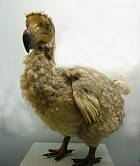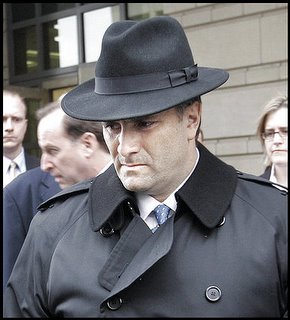
White Flight in Silicon Valley As Asian Students Move In
Wall Street Journal: By most measures, Monta Vista High here and Lynbrook High, in nearby San Jose, are among the nation's top public high schools. Both boast stellar test scores, an array of advanced-placement classes and a track record of sending graduates from the affluent suburbs of Silicon Valley to prestigious colleges.
But locally, they're also known for something else: white flight. Over the past 10 years, the proportion of white students at Lynbrook has fallen by nearly half, to 25% of the student body. At Monta Vista, white students make up less than one-third of the population, down from 45% -- this in a town that's half white. Some white Cupertino parents are instead sending their children to private schools or moving them to other, whiter public schools. More commonly, young white families in Silicon Valley say they are avoiding Cupertino altogether.
Whites aren't quitting the schools because the schools are failing academically. Quite the contrary: Many white parents say they're leaving because the schools are too academically driven and too narrowly invested in subjects such as math and science at the expense of liberal arts and extracurriculars like sports and other personal interests.
The two schools, put another way that parents rarely articulate so bluntly, are too Asian.
This has got to be one of my favorite articles of all time.
It's poorly written, and pretty close to racist--in order to create a context for the open racism of the white parents quoted and thus smooth their bigotry, the reporter uses 'Asian' instead of Asian-American as a way of ascribing otherness and foreignness to kids who in many cases were born and raised here.
But oh, the quotes--so full of unintentional irony. Most whites walk around with such an engrained sense of racial superiority that it's funny watching them spin anything that goes against their self-delusion.
So for example, as Asian Americans have started outperforming whites in school, Asian Americans have simply been put into a special non-counting class of their own, allowing headlines to continue reading 'Minorities score lower on test.'
But what happens when whites become not just the numerical, but also embarassingly obvious performance, minority?
At Cupertino's top schools, administrators, parents and students say white students end up in the stereotyped role often applied to other minority groups: the underachievers
In one 9th-grade algebra class, Monta Vista's lowest-level math class, the students are an eclectic mix of whites, Asians and other racial and ethnic groups.
"Take a good look," whispered Steve Rowley, superintendent of the Fremont Union High School District, which covers the city of Cupertino as well as portions of other neighboring cities. "This doesn't look like the other classes we're going to."
Ms. Gatley, the Monta Vista PTA president, is more blunt: "White kids are thought of as the dumb kids," she says. ...
On the second floor, in advanced-placement chemistry, only a couple of the 32 students are white and the rest are Asian. Some white parents, and even some students, say they suspect teachers don't take white kids as seriously as Asians.
Heh, heh; imagine, not being taken seriously, just because of the color of your skin! The nerve of people to have lower expectations of you and not listen to you just because of what you look like!
So what's a white parent to do? Tell your kid to study more and prepare for life in the wide-open 21st century? Nah, too hard.
Suck it up and reflect on the lessons of people in glass houses? Nah, too hard.
Spend more time with their kids and pay more than lip service to the importance of education? Nah, too hard.
Easier to just move.
As in move to another school. Or, easier yet, move the goalposts and redefine success. In the process, of course, let's be sure to definine Asian Americans as other, and denigrate their achievements.
Cathy Gatley, co-president of Monta Vista High School's parent-teacher association, recently dissuaded a family with a young child from moving to Cupertino because there are so few young white kids left in the public schools. "This may not sound good," she confides, "but their child may be the only Caucasian kid in the class." All of Ms. Gatley's four children have attended or are currently attending Monta Vista. One son, Andrew, 17 years old, took the high-school exit exam last summer and left the school to avoid the academic pressure. He is currently working in a pet-supply store. Ms. Gatley, who is white, says she probably wouldn't have moved to Cupertino if she had anticipated how much it would change. ...
The white exodus clearly involves race-based presumptions, not all of which are positive. One example: Asian parents are too competitive. That sounds like racism to many of Cupertino's Asian residents, who resent the fact that their growing numbers and success are causing many white families to boycott the town altogether.
"It's a stereotype of Asian parents," says Pei-Pei Yow, a Hewlett-Packard Co. manager and Chinese-American community leader who sent two kids to Monta Vista. It's like other familiar biases, she says: "You can't say everybody from the South is a redneck."
Jane Doherty, a retirement-community administrator, chose to send her two boys elsewhere. When her family moved to Cupertino from Indiana over a decade ago, Ms. Doherty says her top priority was moving into a good public-school district. She paid no heed to a real-estate agent who told her of the town's burgeoning Asian population.
She says she began to reconsider after her elder son, Matthew, entered Kennedy, the middle school that feeds Monta Vista. As he played soccer, Ms. Doherty watched a line of cars across the street deposit Asian kids for after-school study. She also attended a Monta Vista parents' night and came away worrying about the school's focus on test scores and the big-name colleges its graduates attend.
"My sense is that at Monta Vista you're competing against the child beside you," she says. Ms. Doherty says she believes the issue stems more from recent immigrants than Asians as a whole. "Obviously, the concentration of Asian students is really high, and it does flavor the school," she says.
When Matthew, now a student at Notre Dame, finished middle school eight years ago, Ms. Doherty decided to send him to Bellarmine College Preparatory, a Jesuit school that she says has a culture that "values the whole child." It's also 55% white and 24% Asian. Her younger son, Kevin, followed suit. ...
"It does help to have a lower Asian population," says Homestead PTA President Mary Anne Norling. "I don't think our parents are as uptight as if my kids went to Monta Vista."
Oh well. The reality of the situation is demographically, whites are already minorities in many parts of the country--it's a trend that will only accelerate.
And the emergence of China and India on the world scene only emphasizes the fact that the world is not only flattening, but whites may even find themselves in the valleys at times. Since whites always like to use words like sea/hordes in conjuction with Asians and Asian Americans, it'd be funny if this torrent of high-achieving Asiatics actually does wind up burying whites in an ocean of mediocrity.
Whites are just going to have to learn to fit in, just as Hispanics and blacks and Asian Americans have always had to. White parents are going to have to start thinking about the importance of sending Johnny to school with the Hous of the world, because they want to prepare Johnny for a workplace where Hou is his boss and it's always good to rub shoulders with upper management. Gives you a better shot at getting invited to play golf at the country club, if nothing else.
In short, whites are going to have to become part of society, instead of blithely believing they are society.
What happens when a people who have been used to defining society and forcing others to adapt have to at times live by the rules and expectations of others?
What happens when a people who are always grumbling about having to tolerate others find themselves the ones being tolerated?
What happens when a people who are always lecturing others about the right way to do things find themselves at the back of the class?
What happens when a people who never thought of themselves as a people discover their assumptions and cultures are not only not universal, but may not even be competitive and thus have to change?
And what happens when a people used to peering at and analyazing 'minorities' as if they were some strange subspecies find themselves on the other end of the scope? The Internet has truly allowed a thousand flowers to bloom, just see
Backlash of Wall Street Journal Story Reverberates in Bay Area Chinese Community .
I'd hope whites don't retreat to hide behind their gated communities and private schools. After all, society is richer when all members fully participate; we need a diversity of voices.
And don't worry, white parents, there's no doubt your children can do just as well as Asian American kids, given the same environment and encouragement.
Just have a little confidence in them--and yourself.
Photo of dodo bird in unspecified museum taken by V. K. Balagopal via Alphabetic Bird Photo Index.




















